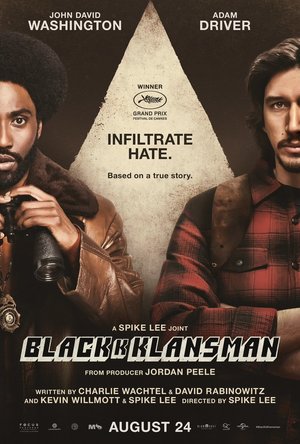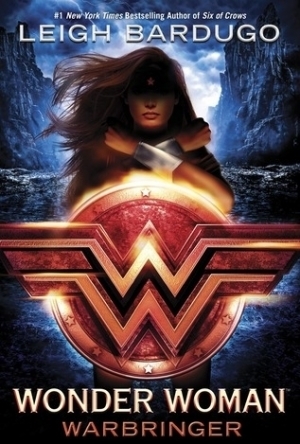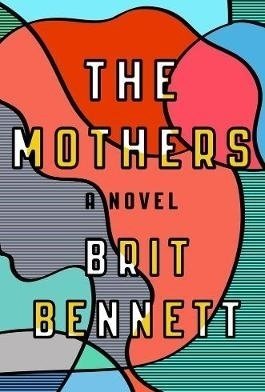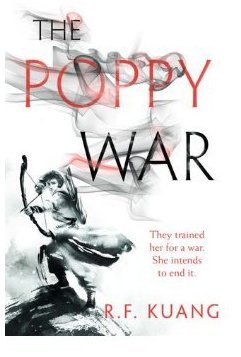Dubose Heyward: A Charleston Gentleman and the World of Porgy and BESS
Book
In 1924 DuBose Heyward (1885-1940) was a businessman absorbed in his Charleston heritage. One year...
Gender, Inequality, and Wages
Francine D. Blau, Anne C. Gielen and Klaus F. Zimmermann
Book
In all Western societies women earn lower wages on average than men. The gender wage gap has existed...
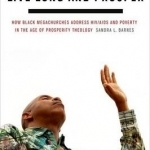
Live Long and Prosper: How Black Megachurches Address HIV/AIDS and Poverty in the Age of Prosperity Theology
Book
This pioneering new study of the Black megachurch phenomenon brings nuance and depth to the...
Hazel (1853 KP) rated Small Great Things in Books
May 24, 2017
The gist of the storyline is that a baby dies whilst under the care of a nurse, prompting the grieving parents to take her to court with the accusation of murder. Although that sounds like an interesting story, it barely begins to describe what the book is about. The character on trial, Ruth, is an African American labour and delivery nurse – something that in this day and age need not by an issue. On the other hand, the parents of the baby are White Supremacists: seriously racist with the belief that white people are the master race. The father, Turk, refuses to let his wife and child be treated by Ruth, however circumstances result in her being the only nurse available to watch Davis, when, unfortunately, he so happens to go into cardiac arrest. Although the reader knows that Ruth is not at fault, Turk insists she murdered his child – but is he accusing her of medical negligence, or punishing her for being black?
Three characters, all with different views and experience when it comes to racism, alternately narrate Small Great Things. Ruth and Turk represent the extremes at either side of the scale. Ruth experiences first hand the negative impact of prejudice in the American system and society, not only through this court case, but in everyday life as well. She also reveals the difficulties growing up in a predominately white environment, never feeling like she fitted in with her peers. Alternatively, Turk spent his teenage years attending KKK rallies, participating in a white power movement, and beating up anyone who was different: black, foreign, gay, Jewish and so forth.
The third character represents the majority of white people living in America. Kennedy is a public defender and the lawyer assigned to Ruth’s case. Like most of the population, she believes that she is not racist, and persuades Ruth to leave the colour of her skin out of the argument. However, as she gets to know her client, she begins to realize that it is nigh on impossible to ignore racial prejudice.
Picoult shocks the reader on two accounts: one, the way that people of colour have been, and still are, treated; and two, the revelation that an invisible empire of White Supremacists are living amongst us. Yet there is a third way in which Picoult provokes outrage – she indirectly accuses the reader of being racist, too.
There is always something to learn in a Jodi Picoult novel, for instance medical terminology, or the way in which a court trial is conducted. Small Great Things provides a lot more eye opening information than any of her previous books, unveiling facts about such a controversial subject.
Through Kennedy, the reader’s eyes are opened to the racial discrimination that we all turn a blind eye to. Ignored are the difficulties African Americans suffer when going shopping, applying for jobs, attending school, walking down the street, sitting on a bus, and so forth. Picoult asks me as a reader to think about how my life has been affected by racial discrimination: being served politely in shops because I am white, not having my ethnicity questioned when applying for college etc. Living in Britain I have not experienced openly hateful comments or behaviours towards people with a different skin tone – I used to believe this was primarily an American problem. Yet, Small Great Things has really made me think about the hierarchy of power within society, particularly in regards to the ethnicity of those at the top, compared with those at the bottom.
Jodi Picoult sat on the idea of writing a book about racism for well over a decade, yet it is particularly apt that it is published now, with the current predicaments America is facing. Although we have come a long way in attempts to achieve equality for all – compare the trial in To Kill A Mockingbird to Picoult’s version – recent events have revealed that we are no where near.
Small Great Things will shock everyone who reads it regardless of their ethnicity and so forth. Many may find it uncomfortable to read, become upset or outraged, and even feel like they are being directly targeted. If this is the case, then good – it should do that. Everyone needs to read this book. On the one hand it is a brilliant, well told story with a beautiful, almost poetic narrative, and on the other, it causes us to face up to the issues we are forever making light of or overlooking entirely. We have grown up believing that racism is a form of hatred when, actually, it is about power. However Small Great Things makes you feel, it is definitely worth reading, especially for the satisfying ending – one that you do not see coming.
Hazel (1853 KP) rated Small Great Things in Books
Dec 7, 2018
The gist of the storyline is that a baby dies whilst under the care of a nurse, prompting the grieving parents to take her to court with the accusation of murder. Although that sounds like an interesting story, it barely begins to describe what the book is about. The character on trial, Ruth, is an African American labour and delivery nurse – something that in this day and age need not by an issue. On the other hand, the parents of the baby are White Supremacists: seriously racist with the belief that white people are the master race. The father, Turk, refuses to let his wife and child be treated by Ruth, however circumstances result in her being the only nurse available to watch Davis, when, unfortunately, he so happens to go into cardiac arrest. Although the reader knows that Ruth is not at fault, Turk insists she murdered his child – but is he accusing her of medical negligence, or punishing her for being black?
Three characters, all with different views and experience when it comes to racism, alternately narrate<i> Small Great Things</i>. Ruth and Turk represent the extremes at either side of the scale. Ruth experiences first hand the negative impact of prejudice in the American system and society, not only through this court case, but in everyday life as well. She also reveals the difficulties growing up in a predominately white environment, never feeling like she fitted in with her peers. Alternatively, Turk spent his teenage years attending KKK rallies, participating in a white power movement, and beating up anyone who was different: black, foreign, gay, Jewish and so forth.
The third character represents the majority of white people living in America. Kennedy is a public defender and the lawyer assigned to Ruth’s case. Like most of the population, she believes that she is not racist, and persuades Ruth to leave the colour of her skin out of the argument. However, as she gets to know her client, she begins to realize that it is nigh on impossible to ignore racial prejudice.
Picoult shocks the reader on two accounts: one, the way that people of colour have been, and still are, treated; and two, the revelation that an invisible empire of White Supremacists are living amongst us. Yet there is a third way in which Picoult provokes outrage – she indirectly accuses the reader of being racist, too.
There is always something to learn in a Jodi Picoult novel, for instance medical terminology, or the way in which a court trial is conducted. <i>Small Great Things</i> provides a lot more eye opening information than any of her previous books, unveiling facts about such a controversial subject.
Through Kennedy, the reader’s eyes are opened to the racial discrimination that we all turn a blind eye to. Ignored are the difficulties African Americans suffer when going shopping, applying for jobs, attending school, walking down the street, sitting on a bus, and so forth. Picoult asks me as a reader to think about how my life has been affected by racial discrimination: being served politely in shops because I am white, not having my ethnicity questioned when applying for college etc. Living in Britain I have not experienced openly hateful comments or behaviours towards people with a different skin tone – I used to believe this was primarily an American problem. Yet, <i>Small Great Things</i> has really made me think about the hierarchy of power within society, particularly in regards to the ethnicity of those at the top, compared with those at the bottom.
Jodi Picoult sat on the idea of writing a book about racism for well over a decade, yet it is particularly apt that it is published now, with the current predicaments America is facing. Although we have come a long way in attempts to achieve equality for all – compare the trial in <i>To Kill A Mockingbird</i> to Picoult’s version – recent events have revealed that we are no where near.
<i>Small Great Things</i> will shock everyone who reads it regardless of their ethnicity and so forth. Many may find it uncomfortable to read, become upset or outraged, and even feel like they are being directly targeted. If this is the case, then good – it should do that. Everyone needs to read this book. On the one hand it is a brilliant, well told story with a beautiful, almost poetic narrative, and on the other, it causes us to face up to the issues we are forever making light of or overlooking entirely. We have grown up believing that racism is a form of hatred when, actually, it is about power. However <i>Small Great Things </i>makes you feel, it is definitely worth reading, especially for the satisfying ending – one that you do not see coming.
Gareth von Kallenbach (980 KP) rated BlacKkKlansman (2018) in Movies
Jul 8, 2019
The film is very creative in the way that it presents history and allows the audience ride along with the action, suspense, and anxiety experience by Washington and Driver’s characters. The tone of the film, at times, is lighthearted in its approach but quickly draws you back in when faced with the reality that David Duke, and people like him walk among us dressing up their racism with non-threatening slogans, professional attire, and a clean-cut package.
The story displayed is a reminder that racism in America has a long history and is not isolated geographically to the south nor limited to Charlottesville or Charleston. The attitudes and actions committed by those who agree with the stances of white supremacy and white supremacist organizations have had a drastic impact on the development of American society. It has shaped and misshapen our attitudes towards one another. It continues to affect us today as we all bear witness to unbridled racism or the downplaying of racism with terms like “political correctness.” This film is timely in its approach and offers audiences a more full and expansive view of what combatting racism and racist attitudes and actions looks like.
Blackkklansman is a film that many have waited for when first hearing about the story of Ron Stallworth and they will not be disappointed with what they witness on screen. Sadly, the people who desperately need to see this movie may pass on it because they are uncomfortable with the subject matter and the reality that they themselves may be complicit in the continuance of racism and white supremacy. This film feels like a conversation being conducted directly between the director and audience. There are subtleties that allow the audience to think about the meaning and even parallel between the early 1970s and the current political environment, as well as, moments where there is no hiding of the message, no metaphor, no allegory. The filmmakers make it clear for those watching that many of us need to wake up almost as blatantly as Spike Lee promotes one of his earlier films, School Daze.
The only problem I found with the film was that I was left wanting more discussion. I wanted to see more of what Ron Stallworth dealt with as the only black detective in his department. If anything, this shows a real strength in the film by leaving audiences emotionally connected with the horrors that he faced, as well as, the way that those around him come to grips with the reality of the hatred and racial violence that had overlooked before because it did not have a direct effect on them. Blackkklansman is a film that will have audiences reflecting long after the credits have rolled. Hopefully the themes, metaphors, and overall message will help foster overdue and well-needed conversations about race, racism, prejudice, and violence. This film takes audiences out of their comfort zones and forces them to face some of the dark corners of America for two hours. Within that two hours, hopefully the people who don’t recognize racism and bigotry get a glimpse of the true horror and fear that marginalized communities feel on a daily basis so that they themselves can be agents of change and fight against racism.
Kyera (8 KP) rated Wonder Woman: Warbringer in Books
Jan 31, 2018
This story focuses on the relationship between Diana and Alia, a New Yorker who finds herself on the island of Themiscyra, rather than the romance most readers have come to expect. Sorry Steve, but this story is all about girl power and friendship. The two girls learn from each other and what it means to have a sister.
<i>“Sister in battle,” murmured Diana, “I am shield and blade to you.”
“And friend.”
“And always your friend.”</i>
I really enjoyed the characters in this book and the diversity that Leigh effortlessly brought to the story. Each character is able to shine without seeming like they were only an addition to hit some invisible quotient. Alia and her brother Jason are New Yorkers, but they're also Greek and African American. Jason's best friend, Theo is Brazilian and a total technogeek. Nim is self-described as Indian, fat and gay, and while none of those things define her or are the most important aspects of her (obviously that award goes to her killer fashion sense) they are very important additions. The characters represent our diverse world today and give each one of us someone or something to relate to.
I have always loved Wonder Woman, so as long as Leigh Bardugo's story felt like the character I've grown to know and love - I was going to be happy, but she managed to raise the bar. She brought me a tale of the Diana that I didn't even know that I wanted, her true origin story and took her readers on a journey with Diana as she learned what it meant to be a true hero, an Amazon.
This book isn't just for fans of superheroes, but those looking for a tale of friendship, maybe a little betrayal and some pure gold lines coming from the Amazonian <s>Princess</s> Queen of comebacks.
Kristy H (1252 KP) rated The Mothers: A Novel in Books
Feb 8, 2018
I'm a strange person who is often wary of reading hyped books, so I put off reading this novel for a while. And I certainly did enjoy it; I can't say that I didn't. I basically read it in one day, and I was very much drawn into the story. While Bennett focuses her story on Nadia, Luke, and Aubrey, she also employs a "Greek chorus" of sorts, composed of "the mothers"--the female elders from the church--who tell the story of Nadia from their third person point of view. It's a different sort of method to employ, but Bennett pulls it off. Still, for me, I found a lot of this novel predictable, and I never really became completely attached to any of the characters. What I did enjoy is how much of the tale is rooted in the bits of life that can drag us all down. It some ways, it very well details the mundane aspects of life - making them seem interesting and nuanced. We basically see the entire span of Nadia's life, which was compelling. However, while there is a depth and message to some of Bennett's story, I can't see it sticking with me for the long-term.
Overall, this is well-written novel and certainly worth picking up. Did I find it worth all the hype? Probably not. But I'm no doubt a bit more cynical than most. It's still an intriguing story that I enjoyed reading.
Goddess in the Stacks (553 KP) rated The Poppy War (The Poppy War #1) in Books
Oct 9, 2018
Rin is an interesting character; she's been hard done by, yes, but she makes decisions that only make things harder on herself. So I feel for her a little, but at the same time, girl. Check yourself. What's been done to you doesn't justify what you plan to do to others. I am hoping she comes to see that in the next book, because her rage and need for vengeance definitely gets the best of her in this one.
The Poppy War is an excellently written blend of military fantasy, epic fantasy, and coming-of-age novel. Unlike some books, where the military aspect far overshadows the characters, leaving them flat, Poppy War doesn't ignore the characters to focus on the bigger picture. It's a very good mix of both close-up focus on characters, fights, battles, and zoomed-out strategy and war. It's probably the best military fantasy I've read, and the Asian aspect of it makes it even better. So much military fantasy is western European, or Steampunk, or both. I've been finding more and more Asian and African fantasy, and I am SO HERE FOR IT. I need to try to find more South American fantasy. I know it's out there.
I will definitely be watching for the next book in this series, because it's awesome.
You can find all my reviews at http://goddessinthestacks.com
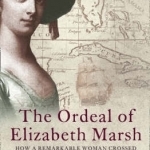
The Ordeal of Elizabeth Marsh: How a Remarkable Woman Crossed Seas and Empires to Become Part of World History
Book
From the author of 'Britons', the story of the exceptional life of the intrepid Elizabeth Marsh - an...


